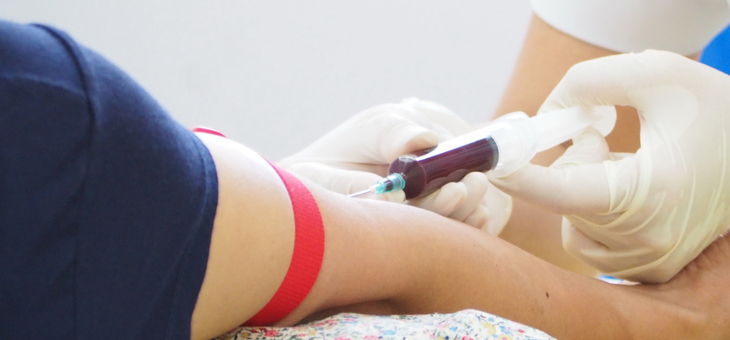A simple blood test could be the breakthrough that two in three Australian adults are seeking.
The latest report from the Australian Institute of Health and Welfare (AIHW) says that 67 per cent of adults are overweight or obese and that weight-loss surgeries jumped from 9300 in 2005-2006 to 22,700 in 2014-15.
Now, research from London’s King’s College and Massachusetts General Hospital in the United States suggests that a blood test could help the millions of Australians who are struggling with weight issues.
The concept of ‘personal nutrition’ is building momentum after an international study showed vastly different reactions to the same diet.
Standard diets and fitness programs don’t work for everyone because people’s genes, microbiomes, environments and lifestyles differ so widely.
This latest research supports the idea that people’s bodies react differently to different foods and that those reactions can inform dietary choices in a way that minimises disease risk and promotes weight loss.
“Our results surprisingly show that we are all different in our response to such a basic input as food,” said Professor Tim Spector, lead researcher on the study and professor of genetic epidemiology at King’s College.
The study involved more than 1000 participants – mostly twins – from the US and UK. It measured how blood levels of markers such as sugar, insulin and fat changed in response to specific meals, along with data on meal timing, sleep, gut bacteria and exercise, news.com reports.
The results revealed a big variation in blood responses to the same meals, with even identical twins, who share the same genes, showing different responses to identical foods.
The researchers argued that a one-size-fits-all set of dietary guidelines was too simplistic and that a personalised approach to nutrition was likely to produce better long-term health benefits.
Brisbane clinical nutritionist Katie King is among those pioneering ‘personal nutrition’ by analysing clients’ blood markers, family history and medical records, news.com reports.
“The whole concept of personalised nutrition really marries science to diet,” she said.
“At the end of the day, the food that is right for you may be very different to the food that is right for somebody else.”
However, international health experts warn against overpromising what personal nutrition can deliver until the science is more developed.
“The consensus is that much research is needed before personalised nutrition can deliver the expected benefits,” the authors – from the US, UK, Spain, Singapore and New Zealand – wrote in the British Medical Journal.
They were especially cautious about suggestions that generic information could be used to recommend a specific diet.
“Randomised controlled diets are essential to providing proof of concept and to giving scientific credibility to the concept of personalised nutrition,” the authors said.
Have you tried and struggled with a succession of weight-loss diets? Does a personalised solution make sense to you?
If you enjoy our content, don’t keep it to yourself. Share our free eNews with your friends and encourage them to sign up.
Related articles:
Common drug can be lethal: study
Nasty news about napping
Look who’s fat and failing

